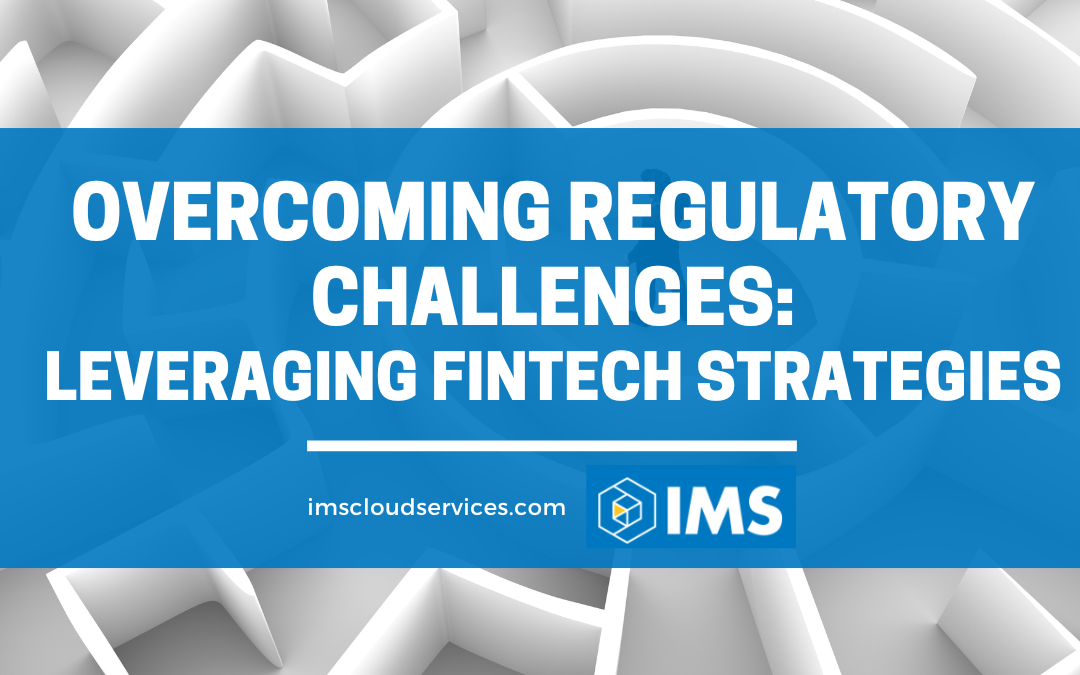Credit unions operate in a highly regulated environment, facing numerous regulatory challenges that require careful navigation to ensure compliance. Staying up to date with evolving frameworks, managing insider threats, and implementing effective access controls are just a few of the key considerations credit unions must consider. Fortunately, fintech solutions from MSPs like Information Management Solutions (IMS) have emerged as valuable tools to help credit unions overcome these challenges and maintain regulatory compliance.
Credit Unions and Regulatory Challenges
Compliance with regulations is a top priority for credit unions, as failure to adhere to guidelines can result in heavy fines, reputational damage, and legal repercussions. To address these challenges, credit unions need to stay informed about the rules that govern the industry. This involves tracking changes to existing laws and understanding new ones that are introduced. Developing comprehensive policies and procedures that ensure adherence to compliance guidelines is also crucial. Regular audits and assessments should be conducted to identify potential compliance gaps and mitigate risks.
Conduct Regular Risk Assessments
Risk assessments play a critical role in compliance programs. Credit unions should conduct regular risk assessments to identify potential risks and implement necessary controls. These assessments should cover all areas of the organization and be conducted by individuals with the necessary expertise. By conducting regular assessments, credit unions can proactively identify potential compliance risks before they become significant issues.
Embrace a Culture of Compliance
Creating a culture of compliance is essential for credit unions to ensure that regulatory requirements are prioritized and taken seriously at all levels. Staff members should be trained on compliance requirements and understand the importance of adhering to them. Compliance should be integrated into all business processes and decision-making. By fostering a culture of compliance, credit unions can demonstrate their commitment to regulatory requirements.
Navigating Evolving Frameworks
The financial services sector is constantly evolving, and credit unions must adapt to new frameworks that govern the industry. Staying up to date with the latest technology and data privacy regulations is crucial. For example, the European Union’s General Data Protection Regulation (GDPR) and the California Consumer Privacy Act (CCPA) have significant implications for credit unions. By integrating compliance requirements into their technology infrastructure, credit unions can effectively manage data privacy issues and stay ahead of emerging trends in the industry.
Insider Threats
Credit unions face the potential for insider threats from both staff and third-party vendors. Mitigating this risk requires careful attention to employee training, background checks, and monitoring to ensure the security of sensitive data. Implementing strict controls for third-party access to data, including vendor assessments and monitoring efforts, is essential to ensure that only trusted parties are granted access.
Implement Effective Access Controls
To mitigate insider threats from staff, credit unions should implement effective access controls that restrict access to sensitive information and systems. Monitoring access and having processes in place for managing access when staff members leave the organization is crucial. By implementing robust access controls, credit unions can reduce the risk of unauthorized access to sensitive data and protect against insider threats.
Leveraging Technology to Manage Compliance
Technology plays a pivotal role in helping credit unions manage compliance effectively. By leveraging fintech solutions, credit unions can streamline compliance processes while also enhancing data security. These solutions encompass various tools and technologies, including data encryption, secure communication channels, and monitoring systems. By integrating compliance tools into their technology infrastructure, credit unions can automate processes, improve efficiency, and reduce the risk of non-compliance.
Partnering with Compliance Experts
Credit unions may also benefit from partnering with compliance experts who can provide guidance and support in navigating regulatory challenges. Subject matter experts stay up to date with the latest laws and regulations, ensuring that credit unions have the knowledge and resources necessary to maintain compliance. By leveraging their expertise, credit unions can effectively address complex challenges and stay ahead of regulatory changes.
Navigating Regulatory Challenges with Effective Strategies and IMS Polaris Sonar
Navigating the complex regulatory landscape is a continuous journey for credit unions. By staying informed about the latest regulations, embracing a culture of compliance, leveraging technology solutions, and partnering with compliance experts, credit unions can effectively manage compliance and mitigate risks. Here, IMS’s Polaris Sonar emerges as a key partner. This innovative solution automates compliance processes, helping credit unions efficiently manage and adhere to ever-changing regulations.
With features tailored to address data classification and regulatory reporting, Polaris Sonar empowers credit unions to confidently tackle compliance challenges. By integrating these advanced fintech solutions, credit unions can safeguard sensitive data, build trust with members, and lay a strong foundation for sustainable growth. Discover how IMS’s Polaris Sonar can revolutionize your compliance strategy.

